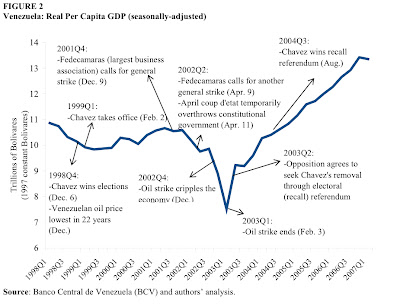 (Marcel Granier, president of RCTV)
(Marcel Granier, president of RCTV)As promised, a look at the disappearing-reappearing-who-knows-what-next case of RCTV...by someone else!!!! Those cats over at Venezuelanaluysis.com are just quicker on the draw than myself...
By: Chris Carlson - Venezuelanalysis.com
Mérida, July 25, 2007 (venezuelanalysis.com)— Venezuela’s Telecommunications Commission stated this week that the private TV channel RCTV must continue to follow Venezuelan media regulations, even though its new headquarters are in Miami.
RCTV has argued that it is not subject to Venezuelan law now that the newly-returned channel is based out of Miami and claims to be an international channel. Meanwhile, RCTV was awarded a "freedom of the press" award on Tuesday by the Inter-American Press Association (IAPA), an association of private newspaper editors and directors.
The nation's oldest private channel came back on the air last week via cable and satellite, after going off the national airwaves on May 28th, when its broadcast license expired. After the Chavez government denied the channel a renewal of its license to broadcast on the nation's VHF spectrum, RCTV came back on Monday of last week as RCTV International on cable and satellite subscription television. Since then, the channel has claimed that it does not have to comply with mandatory government public service messages or play the national anthem twice daily, as is required of all national broadcasters by law.
"RCTV International has the same characteristics as other international channels in that is has international capital, mixed production, and broadcasts at an international level," said an official communication from the channel. For that reason, the channel claims that it should follow the rules that apply to other international channels, not the national ones.
"RCTV is an international channel with US stockholders that broadcasts in several Latin American countries," said Oswaldo Quintana, legal advisor to the channel. "Just like Telesur, Sony, Spanish Television, or CNN, [RCTV] cannot do national transmissions for any government in particular."
Venezuelan government representatives, however, insist that RCTV must follow Venezuelan law since its programming is made up of mostly national programming. According to President of the Venezuelan Chamber of Subscription Television, Mario Seijas, all channels with Venezuelan national production must follow the law regardless if its legal address is outside of the country.
"A national channel is understood to be national audiovisual production," said Seijas. "You can be registered as a business abroad, but your content, your personnel, your infrastructure, and your base of operations is in Venezuela and therefore it is mandatory to follow the parameters of the [Venezuelan] media responsibility law."
According to the Venezuelan government, the national media law applies to all national broadcasts whether they transmit through cable, satellite, or the VHS spectrum. In this case, RCTV would be required to respect the 2004 Radio and Television Social Responsibility Law and transmit all government public service messages.
"RCTV is required to respect the Radio and Television Social Responsibility Law, as is stated in Article 1, as a service of national audiovisual production broadcast by subscription, in this case DirecTV and Intercable," said Telecommunications Minister Jesse Chacon the week before RCTV returned to the air.
But RCTV has refused to broadcast the public service messages and did not comply with the first of these since its return to the air last Monday.
"Freedom of the press" Award for RCTV
Tuesday, the Inter-American Press Association (IAPA) awarded RCTV president Marcel Granier with the "Freedom of the Press" award. The association of private newspaper editors and directors gave the award to RCTV for "its tenacious fight for freedom of expression in the western hemisphere" and for "defining with courage and determination their right to keep their television channel concession." The association stated that RCTV had been "snatched away by the Venezuelan government of Hugo Chavez."
"They have prevented [the Venezuelan government] from silencing, for strictly political reasons, an independent and professional voice that has exercised freedom of expression in Venezuela for half a century," said Gustavo Mohme of the IAPA awards commission.
The association congratulated the channel for making "enormous efforts" to maintain the transmission by cable and satellite after their license for the VHF spectrum expired.
The Venezuelan government has previously often criticized IAPA for being an association that protects the interests of media owners, not of freedom of expression.






